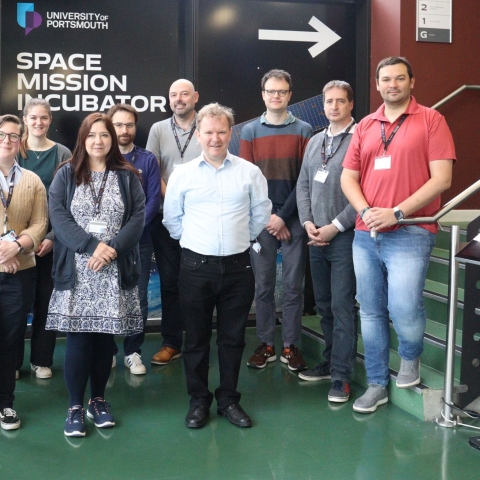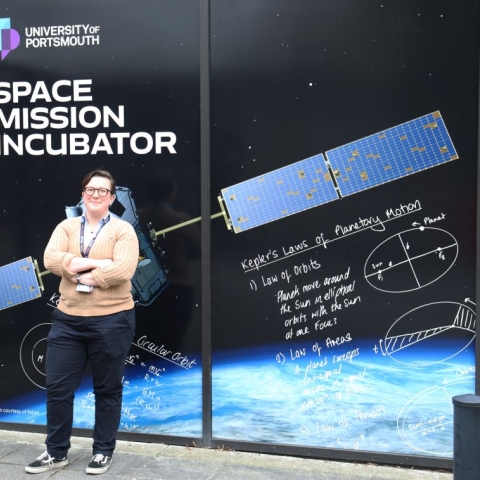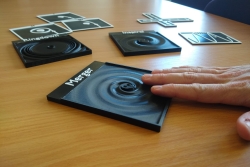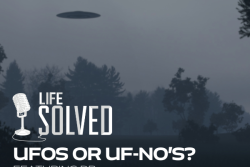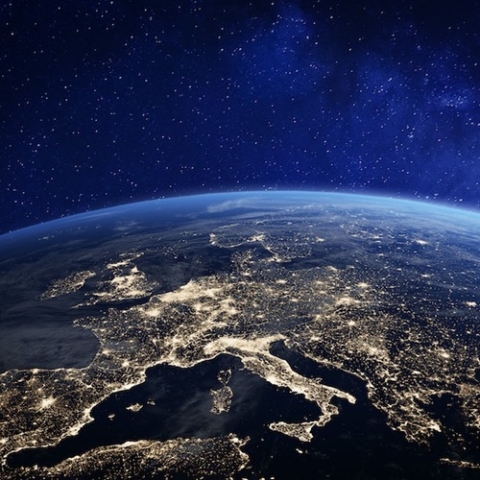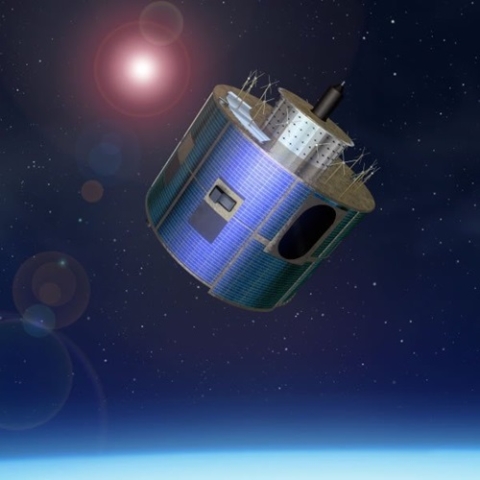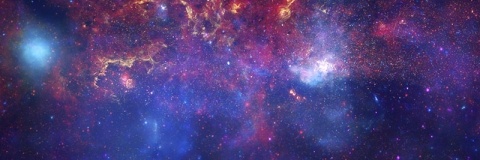
Space research helps address fundamental questions about our place in the Universe and allows us to prove or disprove scientific theories developed on Earth, such as gravity, the atmosphere and the geological evolution of other planets.
Public imagination is often focused on space exploration such as rockets, spacecraft, and Mars missions, and in Portsmouth we have developed a new Mission Design facility to help people design spacecraft and missions. In addition to these exciting and inspiring missions, space science has a huge impact on our lives on Earth keeping us connected, improving our health and protecting the environment. Through our globally-important research and innovation in space technologies, the University of Portsmouth is helping to strengthen the UK as a world-class space nation.
We are working to develop a Portsmouth Research Institute for Space Missions (PRISM) which will bring all our space activity under one roof, including mission design, and will be closely connected to our Institute of Cosmology and Gravitation (ICG). The ICG is a world-leading astronomy centre with an international reputation for research excellence that covers theoretical cosmology, observational cosmology, extragalactic astrophysics, and gravitational waves.
ICG scientists are also turning their expertise to analysing astronomical data to solve problems on Earth. For example, they work with geographers and others to predict natural disasters and combat climate change and are using algorithms used for detecting exploding stars to spot changes in moles to detect early warning signs for skin cancer.
The University also plays a critical role in supporting space industries in the UK: we're home to ASTA Technology, the UK’s only ESA-accredited provider of space engineering training, and a founding partner of Space South Central.

Portsmouth Research Institute for Space Missions (PRISM)
Partnering with industry to make the UK a leading space nation. Find out more, and how you can partner with us, in our brochure.
World Space Week 2023: Space and Entrepreneurship
Find out more about how our space research contributes to the commercial space industry and entrepreneurship.
Explore related news, blogs and podcasts
News

More black hole collisions detected than ever before

Data from new space telescope unveils spectacular discoveries about the Universe

Universities launch pioneering space programme to boost UK skills and graduate opportunities
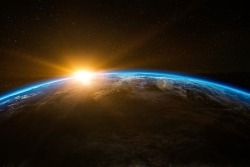
University of Portsmouth selected to take part in European Space Agency challenge
Blogs
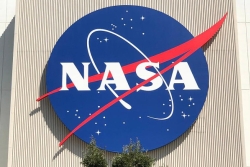
Osiris-Rex: Nasa reveals evidence of water and carbon in sample delivered to Earth from an asteroid
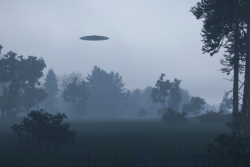
UFOs: what we’ll learn from the Nasa panel investigating sightings

ICG astrophysicist is one of the world's leading female physicists
Mission Space, collaborations and business engagement
We champion regional space cluster activity. The University is an integral part of locally-led innovation clusters working to fulfil the space sector’s ambitions.
We’re a founding partner of Space South Central, a partnership between industry and academia, designed to catalyse investment and deliver missions and capability. We also launched Mission Space in 2022, an exciting strategy promoting cohesion among key players in the South of England to drive growth in the sector.
Our research has been undertaken with various industry partners including aerospace primes such as Airbus, BAE Systems and QinetiQ.
Our software team in ICG explores innovative applications of astrophysics data analytics tools, and plays leading roles in the science requirements, design and analysis of data from many space and ground-based telescopes. This includes major international projects such as the Sloan Digital Sky Survey (SDSS), the Large Synoptic Survey Telescope (LSST), the European Space Agency Euclid satellite, the Laser Interferometer Gravitational-wave Observatory (LIGO), and the Laser Interferometer Space Antenna (LISA).
Work with us
The University of Portsmouth is well-placed to help the space industry — from our wealth of world-leading space expertise and track record of successful partnerships in space-related research and innovation, to our location at the heart of the UK space sector.
The National Space Strategy recognises that academia and research institutes are a vital component to growing the UK space sector. The strategy acknowledges the contribution of universities to world-class Earth and space research, nurturing talent and space engineers, and unleashing innovation.

SOLENT SPACE – On a mission to create a space-enabled future for all
Explore the Solent area's contribution to the space sector, from rockets to satellite data. See how we're contributing to knowledge, training and industry outreach.
Research
Explore our Institute of Cosmology and Gravitation (ICG) and the space-related research taking place in our Future & Emerging Technologies theme.
Institute of Cosmology and Gravitation

Cosmology and Astrophysics

Future and emerging technologies

Research features
Read in-depth features on the pioneering work being done by our researchers.
Amateur sleuths muscle up the science of discovery

Celebrating Women in Space
Find out more about the research work being done by three of our leading space-focused researchers.
Dr Jen Gupta, Senior Public Engagement and Outreach Fellow

Professor Claudia Maraston, Theoretical Astrophysicist

Dr Laura Nuttall, Reader at the Institute of Cosmology & Gravitation

Contact us
Together, we can take a giant leap towards realising the ambitions of the UK Space Strategy. We would love to discuss your projects with you to explore how research and innovation can deliver your goals for investment, product and talent development, and business growth.
Lucinda King
Space Project Manager
lucinda.king@port.ac.uk
Telephone: +44 (0)23 9284 5151

